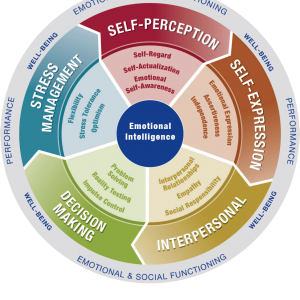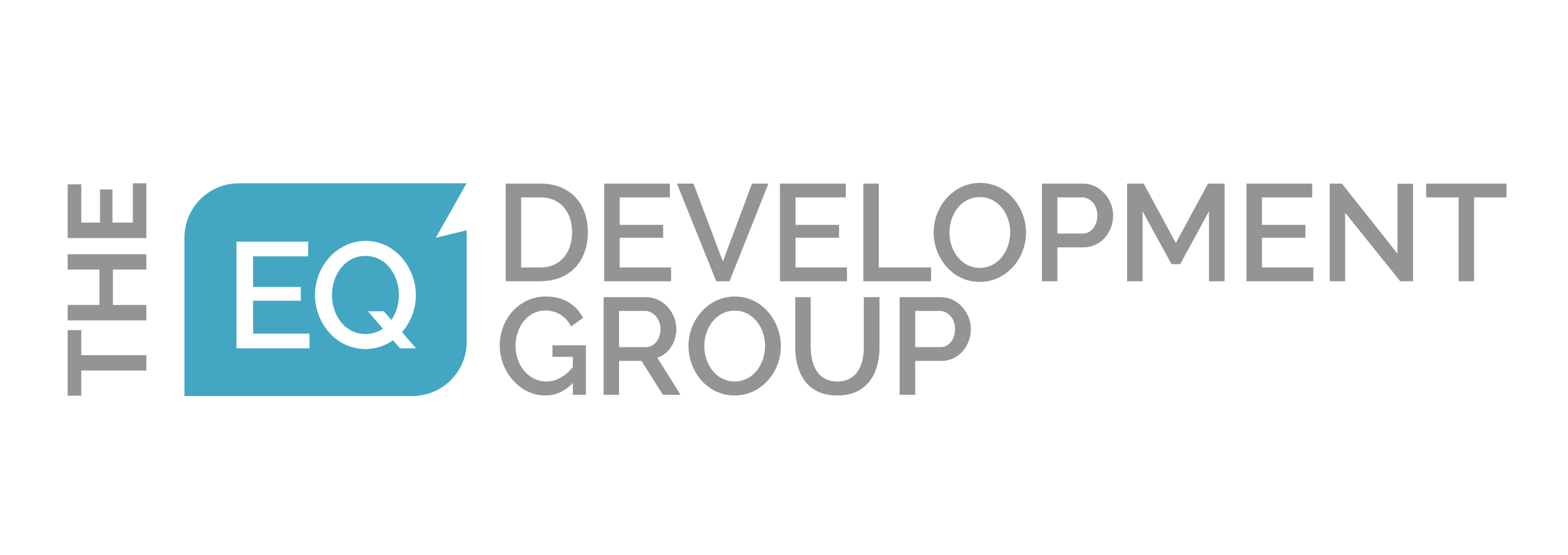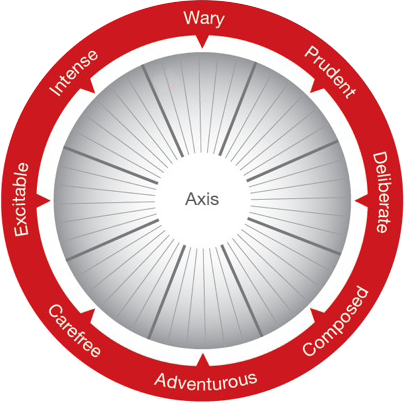Examples of Emotional Intelligence – Part 1
[vc_row][vc_column][vc_column_text css=”.vc_custom_1563615768098{margin-bottom: 0px !important;}”]
Are you an emotionally effective leader? Would you know an emotionally effective leader if you met one?
Using the EQ-I 2.0 model of emotional intelligence (shown right – click on the image for a larger view) we can look at practical examples of emotional intelligence, and how that translates into actions and behaviours of an emotionally effective leader. In this two-part blog post I’ll do just that using ‘Sally’, a composite of a number of leaders I have had the pleasure to work with in recent years.
Examples of Emotional Intelligence
Sally, our emotionally effective leader, is self-assured and confident, without being overly pushy or arrogant. She recognizes both her leadership strengths and opportunities for growth. She challenges herself to meaningful goals – goals that may have nothing to do with promotions or pay increases. Goals might be around achieving better work-life balance, learning a new skill, or simply being a more effective leader. However these goals do not dominate her behaviour, or overshadow her sense of living in the moment.
She has a strong understanding of her emotions and can identify what triggers an emotional reaction, and also how those reactions can color her beliefs, judgments, or actions. She expresses, clearly and consistently, to others how she feels about a situation or issue. Her body language is congruent with her words, and others don’t have to guess how she is feeling, what mood she is in, or where she really stands on an issue or opportunity.
Sally stands up for herself and what she believes in. She takes action as necessary, being appropriately swayed or affected by the well-being of those around her, but not avoiding a tough decision that needs to me made. She considers the input of others, and factors that into her decision-making process, but stands on her own should the need arise. Sally accepts that not every decision she makes will be popular, or correct. However she reflects back on each and every decision to determine whether it should have been different, and what can be learned.
Sally works hard to build healthy, mutually beneficial relationships with those around her both at work and in her home life. She recognizes the value of relationships – supporting others as needed and accepting support when it is offered. She understands that not everyone’s experience of the world is the same as her own, and offers support to others where appropriate based on that understanding. Sally fully accepts that others may not always be able, or willing, to do the same for her.
Read Part Two of this Blog HERE
[/vc_column_text][/vc_column][/vc_row]




